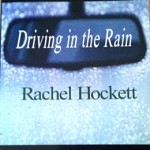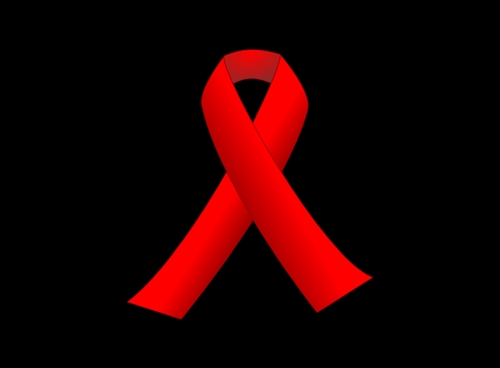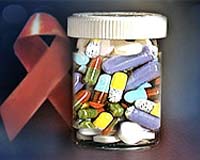“Oh, my God. Are we gonna die?”
My good pal Jake (not his real name) and I had just consumed an entire package of Pepperidge Farm Milano cookies. We were hanging out in my dorm room, and, for some reason (being stoned as a wheat cracker), we got it into our heads that the cookies we’d just consumed, which were beginning to slightly nauseate us, were infected with botulism. The fact that botulism cannot grow in a box of cookies was no deterrent whatsoever to our worry. Well? We were young and imaginative (and, have I mentioned, high as a kite?).
The year was 1973. I was a senior, and Jake was a junior. We spent a great deal of time together. We had a lot in common. We were both active in our college theater group, both English majors, both appreciators of all things literary and artistic. We discussed Keats and Shelley, Albee and Shakespeare, the Beatles and Joni Mitchell. We laughed, we dished, we did plays. We were fast friends.
Jake often talked about a certain gorgeous woman he loved, a classmate, Melissa (not her real name). He bemoaned Melissa’s casual indifference toward him, and wondered, hour after hour, how he might entice her—she was beautiful, talented, wealthy, and programmed for an enormously successful life–to notice him. I would listen and console, and try to offer practical suggestions as to how Jake might win over the object of his affections. I had a steady boyfriend of my own, and there never was any sexual attraction between Jake and me, in any case.
Shortly after he graduated, a year after I did, Jake discovered one of the major reasons he had not succeeded in winning Melissa’s attentions. As it happened, he felt no sexual attraction for her either, or for any other of the many women he had adored from afar while in college. He was gay, and out he came, in all his self-realized glory.
In 1981, the Centers for Disease Control identified for the first time something called HIV/AIDS—the acronym for a dire-sounding mouthful, human immunodeficiency virus infection/acquired immunodeficiency syndrome. This plague was cutting down precious young lives with a vicious lack of mercy. And Jake was losing close friends—peers— at an alarming rate. We all were.
In 1987, Jake’s doctor advised him to be tested for HIV. Jake resisted, explaining that since there was no real drug for it and nothing he could do about it if he did test positive—besides worry—he really wasn’t too keen on the idea. His doctor insisted, claiming that knowledge is power and that it would help to be ready in case of a positive result. And positive it was. By 1989, Jake’s T-cell count had dipped below 200 (the normal count for these helper cells is 500 to 1,000), and he was officially diagnosed with full-blown AIDS. Jake has now been living sick for twenty-three years.
In 1994, Jake’s eyes developed problems. A routine started of sitting in his doctor’s office with a group of men—he called it the knitting circle—who, like him, had been diagnosed with CMV (cytomegalovirus), to receive IV infusions for their condition. As far as Jake can tell, this treatment was ineffectual, and, when Jake suffered a nearly fatal heart attack in 1997, he subsequently learned that many of the men in that knitting circle had died of heart attacks. Was there a connection between the CMV meds and heart health? Jake doesn’t know, he’s never learned, and, at this point, he says he doesn’t care. He says, “It’s not that I don’t care exactly; it’s just that I’m too sick to pay much attention.”
I suppose you could say that Jake was one of the lucky ones. Diagnosed within the first decade of cases, he now says everyone he knows has died, and that it is only by dint of the remarkable Ukrainian Jewish genes he got from his parents, reasonably healthy at ages 97 and 90, that he is still alive.
Jake was also lucky because he had access to cutting-edge medical care and was given every new drug designed to combat his constellation of conditions almost as soon as it became available.
But lucky is such a relative term. Every day Jake takes twenty-two different prescriptions, and feels certain that this potent cocktail has created as many symptoms as it’s battled. Jake can no longer read; advanced CMV has robbed him of his greatest pleasure in life. “That’s the worst,” he says. “If I could read, I would sit here and read!” Instead he sleeps a lot, and stares at the four walls. He must sit very close to the TV to watch it, and has lost interest in all but a couple of shows. He spends many hours lying on his sofa listening to the radio. Yankees games are a favorite, but they only play for half the year. The rest of the time he keeps NPR on, which he says he doesn’t really like but it’s the best thing.
He can’t walk more than two blocks; arthritis has worn down his hip to a point where the only fix is a total hip replacement, which no doctor has yet agreed to do, citing all the risk factors. Between his near blindness and his worn out hip, he wakes up every morning in pain. He has a prescription for Percocet, which he only uses from time to time, but when he does, he must consume three times the dosage to get any relief.
Jake, who was always very slim even in the blush of health, is losing weight, and has started bleeding from the rectum. The doctor doesn’t know why. “I’m wasting. They tell me to eat. But I can’t eat when I feel nauseated, and now even the Ensure they’ve prescribed nauseates me. I look like Auschwitz.” He says, “I just want to close my eyes one night, and not wake up.”
Stricken just as personal computers were coming into common use, Jake has never owned one, and relies wholly on the phone to communicate with the world. His parents have the means to support him financially—another way in which he is one of the “lucky” ones, because he hasn’t been able to earn a living for almost twenty years. His brother and sister have families and lives of their own, and they don’t see Jake very often, and they no longer even call him very much. Other once-dear friends, more local to him, check in on him less and less. He has been my dear friend for nearly forty years, and I do not phone as often as I should. Jake is alone.
I told Jake I would be writing about him in observance of World AIDS Day, and he said he had missed it this year. “But I don’t need a World AIDS Day. I live it every day.” He apologized that he couldn’t remember more details for my piece—another side-effect of so many meds. Until his illness overwhelmed every other part of his life, Jake boasted one of the finest tuned long-term memories I’ve ever known.
Later this month, when I decorate my Christmas tree, I will hang the ornament that Jake gave me in the early nineties: a clear glass globe containing a plain red AIDS ribbon. It is among my most treasured possessions.
When I told him I would be opening this piece with the botulism anecdote, he giggled and said, “That oughta get their attention.” I don’t know how much longer Jake’s (relative) luck can hold out. I only wish eating those cookies had been the worst scare he’d ever had.
_______________________________________________________________________________________________________

Learn more about Rachel’s new novel here —-> Driving in the Rain
Join Rachel on Facebook here —-> The Equality Mantra
World AIDS Day: My Friend Jake,




